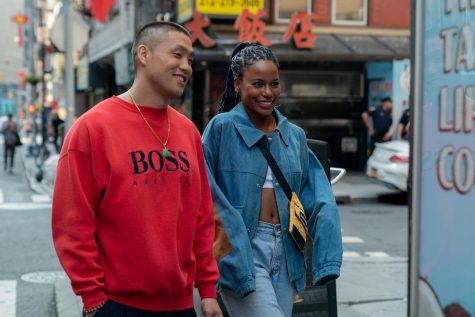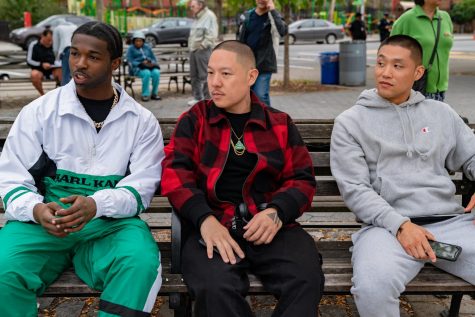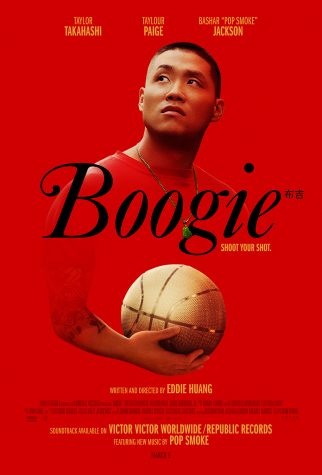Review: ‘Boogie’ drops a dime on the struggle of upward mobility for Asian Americans
March 3, 2021

While Alfred “Boogie” Chin is a ball hog on the basketball court, he is a benchwarmer when it comes to initiating moves in his career. The coming-of-age film “Boogie” provides the play-by-play on how Alfred becomes the star player of his own life.
“Boogie,” the directorial debut of writer, producer and restaurateur Eddie Huang, premieres Friday, March 5, with limited theatrical releases across the country.
Alfred, played by actor Taylor Takahashi in his first feature film, is an Asian American teenager from Queens, New York, dreaming of breaking into the NBA. However, he must also obtain a college scholarship and manage pressure from his parents, who have always put him on a pedestal, pushing him to succeed.
For viewers who are painfully pedestrian when it comes to the ins-and-outs of anything basketball, there may be an aversion to watching this film. But fear not—the sporty setting is only a backdrop for this coming-of-age story.
Alfred has all the self-infatuation and ego that comes with being a child prodigy. Basketball serves as his path toward upward mobility, and his parents are banking a lot on him flourishing—literally. Unpaid bills and debt pile up while they put Alfred through prep school to give him a shot at playing in the NBA.
Although stories like this have already been trodden into walkable pavement for narrative storytelling, “Boogie” stands apart because it explores how seemingly insignificant athletic achievements are as inspirational touchstones for Asian Americans amid the racism and generational strife they endure in the U.S. and abroad.

Actress Pamelyn Chee is an unyielding battle axe of a mother as Mrs. Chin, and Perry Yung is a stubborn boulder of a father as Mr. Chin. Their at-odds and endgame-oriented parenting styles serve as both a rock and a hard place for Alfred’s development.
When hovered over and reined in by his parents, Alfred is passive, bordering on bland as a teenager with the cliché “ball is life” at the forefront of his being. His assertive persona only reappears when parroting his parent’s aspirations for him. Alfred never assumes the team is riding his coattails to success, but he cavalierly overestimates his contributions in the team-oriented sport of basketball.
Only when he is surrounded by his team and classmates does he find a sense of agency to navigate his life outside of what his parents have predetermined for him.
While Asian sports figures and their triumphs—like tennis player Michael Chang’s 1989 victory at the French Open and former NBA star Yao Ming’s position holding the Chinese flag during the opening ceremony of the 2008 Olympics—have significance for Mr. Chin, Alfred is too generationally removed to have them resonate with him as role models. Instead, he opts to serve as his own paragon of athletic success.

Although there is nothing implicitly bad about the dialogue, there is a cognitive dissonance when seeing adult actors who appear to be in their thirties portraying high schoolers fresh out of puberty.
The cast’s crass slang comes off as a bit grating to the ear but is also oddly within the realm of what a high schooler would say. Alfred is rightfully checked on his brash language by supporting characters whenever he talks back to his mother or demeans women he flirts with—which happens a number of times.
“Boogie” tempers on being a derivative coming-of-age story, retreading similar story beats of sports films that came before it. But for a writing and directorial debut, Huang has something special to say about the strife faced by Asian Americans in the U.S.
The story Huang tells is worth experiencing as a viewer to see this perspective. Sadly, the film’s main message is buried by its focus on the slice-of-life elements of high school drama, making its 1-hour, 29-minute runtime feel deceptively bloated.
The film might telegraph its story beats, but like any big gameplay, it is not any less memorable in its action.







